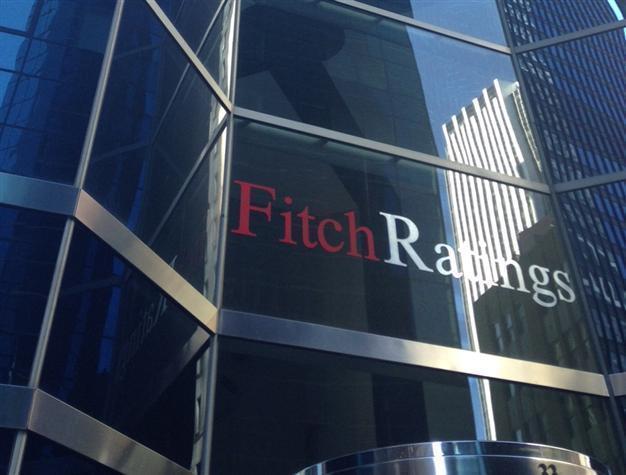Fitch: Fiscal discipline key for Turkey
LONDON - Anadolu Agency
 The commitment to fiscal discipline in Turkey is a key factor in the “stable” outlook for the country’s credit rating, Fitch Ratings Senior Director Paul Gamble told Anadolu Agency on Sept. 22.
The commitment to fiscal discipline in Turkey is a key factor in the “stable” outlook for the country’s credit rating, Fitch Ratings Senior Director Paul Gamble told Anadolu Agency on Sept. 22.Fitch affirmed Turkey’s investment-grade credit rating at “BBB-” with the outlook as “stable,” on Sept. 18.
“The stable outlook means that we foresee neither an upgrade nor a downgrade for Turkey. The key thing to maintain that stable outlook is commitment to fiscal discipline. But also, on the political side, you want to maintain coherence of policy, you want to avoid too much meddling with the economic policy,” Gamble said.
“You want to contain the risks around the potential deterioration of the domestic political situation, and also geopolitical risks. These are very key things to support stable outlook,” Gamble said.
In the first half of the year, GDP growth has been quite robust, Gamble said.
“But we do see, particularly in the third quarter, a slow-down driven by the political and geopolitical situation. Our assumption is that when the election cycle has been concluded, you will see a renewed pick up in GDP growth. However, the investment component of GDP has been relatively weak. Improving the quality of GDP growth is just as important as increasing the rate of the growth itself,” Gamble said.
Fitch’s expectation for GDP growth is 2.8 for 2015 and 3 percent for the next year.
“Our inflation forecast for Turkey this year is 7.1 percent. We revised that outlook recently due to the fall in [the Turkish] Lira. We, then, anticipated a decline to 6.4 percent next year, reflecting more currency stability and a tightening policy from the Central Bank. The current account deficit should fall to 4.6 percent of the GDP this year, then rise slightly to 4.8 percent of the GDP next year - these are relatively low for Turkey’s historical base. This is mainly driven by the lower oil prices,” Gamble said.
There has been a regular flow of funds for debts at Turkish banks and corporates, Gamble explained.
“Another reason that we affirmed the rating, there has been no issue with the banks’ or corporates’ ability to roll over maturing debts. They still have comfortable access to capital markets. In fact, even if there is an abrupt change in the capital markets’ financing conditions, Turkish corporates and banks have comfortable foreign exchange positions,” he said.
‘Risks to be considered’
Nonetheless, Gamble warned, there are risks to be considered.
“The Fed’s rate hike means higher external financing costs. It’s something that Turkish banks and Turkish companies are exposed to. They will pay more for financing. When you look at the big picture, compared with six months ago, we are a bit more comfortable with Turkey’s ability to measure this external vulnerability,” Gamble said.
Gamble pointed out that Fitch’s assumption is that when the Fed hikes interest rates, the Turkish Central Bank also will raise rates. “Potentially once later this year, certainly next year we would probably see some increase in interest rates. They would not necessarily follow every Fed hike, maybe the first two they would follow, and that’s our assumption.”
Gamble also warned of risks around the political situation, particularly of a potential deterioration in the policy-making environment or deterioration in geopolitical situation, or domestic political conflict could potentially have an impact on growth and investment across the economy.
But, he said, there is an opportunity on the political side for the revitalization of the reform program.
“Economic reform has been quite sluggish over the past few years. If we see it revitalized, then we could see stronger economic growth, we could see more investment and potentially we could see a narrowing current account deficit. If we have a government in place that has reformist credentials that’s good, implementing the reforms, that’s the key thing for us.”
Gamble also pointed to the potential for Turkish trade to expand as markets open up in Iran.
“Iran is a huge market, with a population of 80 million. Turkey is geographically one of the natural winners from the re-emergence of Iran’s relations with the international community. But it’s not going to be an easy quick gain, over time it will be beneficial,” Gamble said.
















